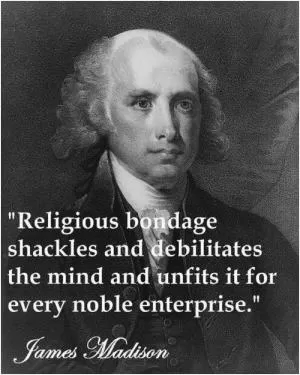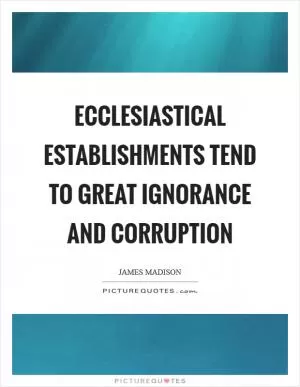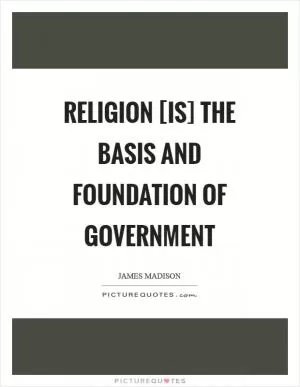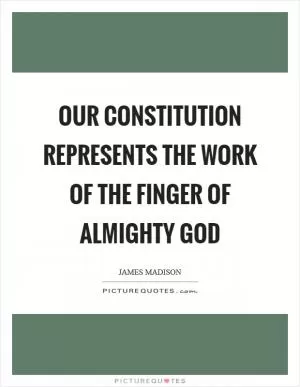The essence of Government is power; and power, lodged as it must be in human hands, will ever be liable to abuse

The essence of Government is power; and power, lodged as it must be in human hands, will ever be liable to abuse
James Madison, one of the founding fathers of the United States and the fourth President of the country, was a firm believer in the idea that the essence of government is power. He understood that power, once concentrated in the hands of a few individuals, could easily be abused. In his famous quote, "The essence of Government is power; and power, lodged as it must be in human hands, will ever be liable to abuse," Madison succinctly captures the inherent danger of centralized power.Madison was a key architect of the U.S. Constitution, which was designed to prevent the abuse of power by dividing it among three branches of government – the executive, legislative, and judicial branches. This system of checks and balances was put in place to ensure that no one branch could become too powerful and tyrannical. Madison believed that by dispersing power among different branches of government, the potential for abuse would be minimized.
Madison's understanding of the nature of power and its potential for abuse was shaped by his experiences during the American Revolution and his observations of the European monarchies of his time. He saw firsthand how unchecked power could lead to oppression and tyranny, and he was determined to prevent such abuses from occurring in the newly formed United States.
Throughout his political career, Madison worked tirelessly to uphold the principles of limited government and individual rights. He was a staunch advocate for a strong federal government, but he also recognized the importance of protecting the rights of the states and the people. He believed that a balance between federal and state power was essential to safeguarding liberty and preventing the abuse of power.












 Friendship Quotes
Friendship Quotes Love Quotes
Love Quotes Life Quotes
Life Quotes Funny Quotes
Funny Quotes Motivational Quotes
Motivational Quotes Inspirational Quotes
Inspirational Quotes